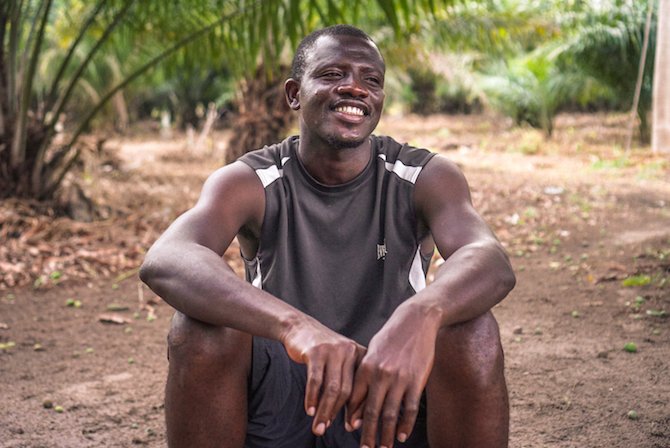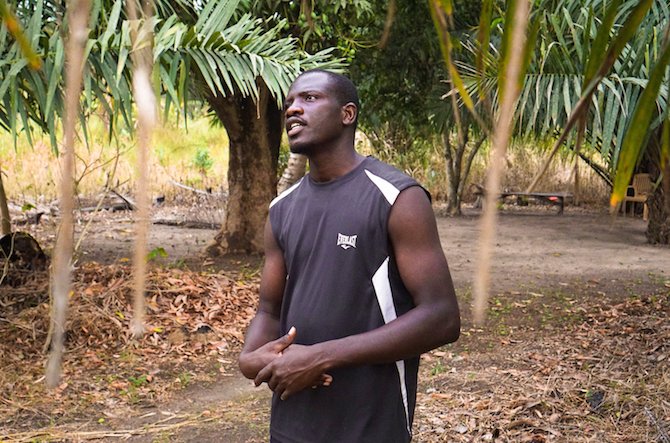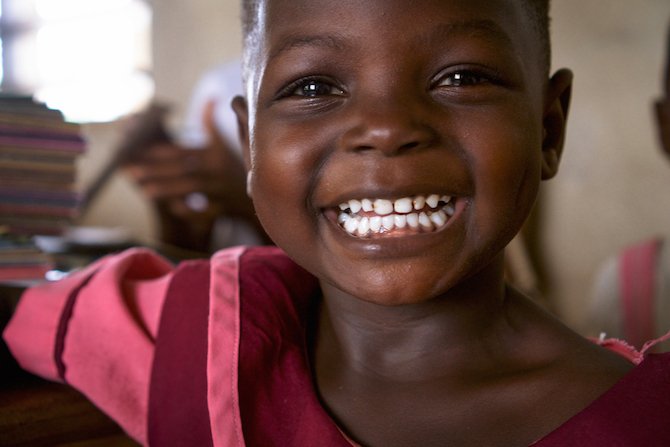This article was contributed by Matt Bautista in support of Mama Hope.
From outside the borders of Africa, the topic of international development tends to revolve around foreign action and what we, as external influencers, are doing to solve long-standing issues overseas. Our media tends to shade Africa with a tone of dependence, reinforcing the notion that without the help of well-intentioned social entrepreneurs from “over-developed” countries, people from any one of the 54 African nations would be lost without us.

If you’ve spent any time in Africa and allowed yourself to look through a different filter, you know that it is full of incredibly bright and motivated individuals who know their communities better than any foreigner and are already out there working on their own community driven initiatives. People like Theresa Kachindaamoto, a Malawian Chief who put an end to over 850 child marriages in her region in an effort to improve women’s rights. Or Faith Wafula, the Kenyan born founder of SEMA, a youth-targeted initiative which aims to end the cycle of gender-based violence in Kenya. People like Theresa and Faith exist in large numbers, and there are plenty of individuals like them whose stories don’t get told in the media.

During my short time as a fellow in Mama Hope’s Global Advocate Fellowship, I met a few of these fierce individuals working to improve their communities. One of the stories I have wanted to share comes from a young Ghanaian man named Bernard Boateng. Bernard, also known as Nana Bee, works for The United Hearts Children Center in Bawjiase, Ghana which aims to end the cycle of poverty by providing children in the local community with access to quality resources.
This is Nana’s story
My name is Bernard Boateng (Nana Bee) and I grew up in Bawjiase located in the Central Region of Ghana, mostly known for it’s farmlands, industrial minerals, and advanced higher education. Most of the people in this town earn their income through selling products in the local marketplace or farming but neither tend to be very lucrative and many people in my community are forced to make sacrifices in order to get by. Despite the sacrifices, life is actually quite beautiful out here. Our homes are set along a landscape of lush hills covered in maize and palms, our people are some of warmest and most generous you will ever meet, and we are proud of where we’re from.

For my family, money was very hard to come by. I was the oldest of four so it was my responsibility to help my family earn income to support ourselves from a young age. When I was 8, I started selling fried fish in the local market before and after school, often resulting in my arriving late and unable to perform to my best ability, but it was a sacrifice I was willing to make for my family. If I put in extra work then, my younger sisters would be able to attend school without having to go through the same struggles I did. In my mind, it was worth it.
How did your work with United Hearts begin?
Around the time when I was getting my degree I started building a strong relationship with one of my father’s friends, Paul Elisha Asamoah, the founder of United Hearts. After I finished my tertiary education he asked if I would consider helping him in his work. Soon after, I began teaching the students at his orphanage because they didn’t have the funds to support a private education for all the children as well as a few children from the community. We didn’t have a structure at the time so we made a classroom under the palm trees outside and began teaching. As time passed I began taking on more responsibility; I started maintaining the farms, managing the volunteer program, monitoring the finances, and from that point I sort of ended up in this role. And now, I love what I’m doing. I don’t get paid, I’m doing it because the desire to do it was placed on my heart.

What inspired you to go a step further and work to improve the lives of individuals outside of your family?
When I was about 8 or 9 my father started farming in a plot of land near our house. He would spend days out on the farm working with the crops, working to make sure we would have enough to live off of when it came time to sell. Months later, when it was finally time to sell, he gathered a large amount of the harvest and told me to share them with our neighbors, free of charge. At 9 years old, when you’ve been working since the age of 8 to support your family, the idea of giving something away at no cost seems bizarre, but he insisted. Seeing the reaction of our neighbors, understanding the importance of kind gestures like that one, that’s what stuck for me, that’s what gave me purpose. As I grew older, I began following their lead and taking actions to improve the lives of those around me, and I am very proud to say that my life is now dedicated to helping others reach their highest potential.
What is the main goal of your work?
Many children in Bawjiase lack access to important resources which prevent them from reaching their full potential, specifically, quality education. Right now, schools are popping up like crazy, but most of them come with a price tag many families can’t afford. At United Hearts, our goal is to provide this essential resource to everyone who needs it, regardless of their economic status. For the past 9 years we have provided stable and supportive housing, food, and care for over 30 local children and, for the past 3, have provided quality education to hundreds of local children who would otherwise go without. We are dedicated to providing our children with quality resources so they may become leaders in our community and contribute to the prosperity of the next generation.

How do you think the work you do with United Hearts has impacted your community?
What’s interesting is that when you invest in a child’s life, the whole family is affected. The parents gain strength from seeing their children reach milestones they were never able to and feel empowered to develop alongside them, to continue to improve as their children grow. Though it may seem like we’re helping one individual, the impact stretches far beyond what we see directly. When a student comes home excited about what they’ve learned, showing clear signs of improvement and growth, it allows their parents to believe in their own growth as well; it pushes them to work harder because they want to develop alongside their children.
A lot of it is also yet to be seen. In this work you can’t expect immediate returns for your efforts, you just have to put in the time and trust that good things will come. The children of this generation are aware of the struggles their families face but are also starting to realize that they have the power to create change. If we can continue to provide them with what they need to thrive, then the rest will follow; that’s all I can hope for.

What makes this work powerful for you?
Sometimes it seems so strange to people why I do this work because I don’t earn any income. Friends have offered me paid jobs and questioned my decisions to work with United Hearts but for me, the point of life is not to make money. The passion to do this work was placed on my heart, and any hardships I face are worth it in the end. The kids make me happy. Each member of our team has dedicated themselves to our work and I know that, even if times are tough, they will stay to help us accomplish our goals because they are not here to get paid, they are here because they want to make a difference. The results we’ve seen in the community are proof to me that we are successful in our work.

How do you know this is the right path for you?
That’s what my spirit tells me.
What does being a global citizen mean to you?
To me, being a global citizen doesn’t have to mean leaving your country, but rather, allowing yourself to connect with people outside of your community to fight for one common goal. I’ve never left Ghana but I’ve met a number of wonderful people from around the world who have worked alongside us and helped us to achieve our goals. The foreigners that visit us and volunteer at United Hearts are able to meet us, live with us and work with us. They are able to put their preconceptions or stereotypes about Africans and Ghanaians aside and experience our culture for what it really is, instead of what they expect it to be. I believe we are helping to create global citizens in our staff, our volunteers, and in our kids because of these real interactions. We're building global citizens by allowing them into our world and showing them how, through our eyes, life is quite beautiful.